Insights on Life After Rehab: Ensuring Long-Lasting Sobriety
Life after rehab can be challenging, yet maintaining long-lasting sobriety is achievable. The content explains effective strategies for keeping sobriety, methods to manage relapse triggers, and the importance of aftercare programs. Readers will learn practical steps to overcome common obstacles and obtain support from alumni programs. This blog post offers clear, actionable advice that addresses resistance to change and prevents setbacks, ensuring individuals in need of behavioral health services gain valuable insights for a stable future.

Key Takeaways
- structured routines and professional support strengthen recovery
- individual counseling and group sessions support long-lastig sobriety
- consistent nutrition, sleep, and exercise improve mental wellness
- identifying personal triggers helps reduce relapse risks
Understanding Life After Rehab and Its Challenges

Life after rehab presents several challenges, many of which involve adapting to new routines and responsibilities. Providers stress that proper advertising of available aftercare services can aid in maintaining sobriety and guiding recovery choices.
Patients often face obstacles such as managing insurance benefits while transitioning to community-based support systems. Providers work to clarify insurance details and ensure that financial concerns do not hinder access to recovery resources.
Emotional regulation issues, including bouts of anger, can complicate the recovery process after rehab. Clinicians emphasize strategies to manage anger and promote healing through structured programs and ongoing therapy sessions.
Integrating proper nutrition and addressing co-occurring conditions, such as bipolar disorder, contribute to a balanced recovery journey. Professionals recommend continued focus on nutrition and mental health care to support long-lasting sobriety and overall wellness.
Effective Strategies for Maintaining Long-lasting Sobriety

Establishing a structured day, engaging in meaningful activities, building a close network, and using professional care are key strategies for lasting happiness and recovery. Experts explain how to stay sober after rehab through consistent nursing support, peer support, and services offered by luxury rehab facilities.
Establishing a Daily Routine That Supports Recovery
Establishing a daily routine serves as an effective strategy to manage the risk of relapse for individuals overcoming substance abuse. A well-planned schedule that includes structured activities can minimize instances of insomnia and improve overall sleep quality, supporting recovery efforts in a sober living house environment.
Professional providers recommend that individuals create a routine that balances personal responsibilities with recovery-related tasks. Such routines serve as a reliable strategy to reduce stress and provide clear guidelines for behavior while enabling smoother transitions during life after rehab.
Engaging in Meaningful Activities to Stay Occupied
Engaging in meaningful activities enables individuals to maintain accountability while minimizing the negative effects of peer pressure. Structured involvement in community events or online forums such as linkedin fosters practical learning and provides a platform for ongoing support, further promoting relaxation and clear focus on recovery.
Active participation in hobbies and educational courses supports a balanced routine during life after rehab. This approach not only reinforces accountability through consistent engagement but also creates opportunities for learning and relaxation, proving beneficial in managing daily challenges and reducing undue peer pressure.
Building a Support Network of Friends and Family
Establishing a reliable support network of friends and family plays a key role in maintaining long-lastig sobriety. Providers stress that guidance from a health professional, alongside community groups like narcotics anonymous, helps to keep the mind focused and supports proper medication management during recovery:
Providers highlight that a strong support network enables individuals to manage daily challenges and adhere to consistent medication routines, reinforcing mental clarity and overall recovery progress. Practical experiences show that regular engagement with loved ones and community services fosters accountability and builds resilience in overcoming setbacks.
Utilizing Professional Resources for Ongoing Care
Providers emphasize that utilizing professional resources can guide behavior modifications, ensuring that individuals continue to receive expert advice after rehab. Evidence suggests that tailored programs help manage alcohol use and address binge drinking patterns, creating a more supportive environment for long-lastig recovery.
Access to ongoing care with health professionals offers practical support that reinforces daily recovery practices. Professionals provide expert insights that play a crucial role in supplementing in-rehab lessons with strategies designed to maintain sobriety and manage challenging behavior.
Recognizing and Managing Triggers for Relapse

Identifying personal triggers such as sudden shifts in mood, feelings of loneliness, and stress due to factors in the United States is essential for recovery from addiction. Recognizing early warning signs and setting up an email support system provide the basis for developing coping strategies and a personalized relapse prevention plan.
Identifying Personal Triggers and Early Warning Signs
Individuals in recovery learn to notice personal signals, such as rising guilt or increasing irritation, that might lead to setbacks in their journey towards stability. Recognizing early warning signs, including shifts in physical activity and a growing interest in being sober curious, facilitates the development of essential life skills for managing challenges.
The process of identifying these cues often involves assessing various emotional and behavioral responses to daily situations and can be summarized as follows:
Professional experts emphasize that comprehending these early signs enables the formation of actionable strategies to curb relapse. Improved physical activity routines and reinforced life skills contribute to a more stable recovery and help individuals address triggers proactively.
Developing Coping Strategies for High-Risk Situations
The development of coping strategies for high-risk situations involves practical techniques to manage substance use disorders and improve daily life. Providers recommend simple routines that include tracking sleep patterns and controlling pain while striving for consistent employment opportunities as a method to reinforce coping skills:
Experts suggest that individuals apply these strategies in everyday life to reduce challenges related to sleep disruptions, pain management, and employment uncertainties. This approach provides actionable insights and practical examples that empower individuals to enhance their overall coping and maintain long-lasting sobriety.
Creating a Personalized Relapse Prevention Plan
The professional team advises that a personalized relapse prevention plan should address individual triggers and incorporate practical steps for managing substance dependence. For instance, a patient recovering from opioid use or stimulant abuse may benefit from tailored strategies that monitor drug-related cues and provide actionable insights to navigate high-risk environments.
Experts recommend that the plan include regular assessments of behavioral patterns and stress factors to mitigate relapse risks. By focusing on actionable data and first-hand examples, a patient can construct a resilient framework that tackles challenges associated with substance dependence, ensuring a proactive approach to long-lasting sobriety.
The Role of Aftercare Programs in Sustaining Sobriety

This section outlines types of aftercare services available, including group therapy and peer support, along with individual counseling as a long-lasting resource. It emphasizes gratitude for support, insights from relapse prevention therapy tennessee, the role of methadone, practical sport activities, and a positive feeling in recovery, setting the stage for detailed discussions in the following topics.
Types of Aftercare Services Available
Aftercare services offer structured group sessions and community events that focus on fostering energy and supporting recovery efforts. These services include practical activities like yoga, which assist individuals in managing withdrawal symptoms related to methamphetamine and benzodiazepine, while parents find value in supportive programs that address family challenges during recovery.
Individual counseling and peer support are available to help devise actionable strategies for maintaining long-lasting sobriety; these services guide individuals in developing personalized care plans that meet their specific recovery needs and account for balancing responsibilities as a parent:
Benefits of Group Therapy and Peer Support
The integration of group therapy and peer support in aftercare programs has been proven effective in promoting a healthy lifestyle after rehab. Experts note that this approach provides valuable feedback from individuals who understand the challenges of relapse prevention, offering guidance on nutrition, including practical advice on cooking and detox routines, which play a critical role in recovery.
Participants in these support groups benefit from sharing actionable insights that reinforce positive behaviors and help manage potential relapse triggers. Real-world examples illustrate that such programs deliver tangible feedback and practical tips, ensuring that individuals maintain a balanced lifestyle while smoothly transitioning from detox to steady long-lasting sobriety.
Individual Counseling as a Long-lasting Resource
Individual counseling offers persistent support through therapy sessions that address key issues such as prescription drug addiction, reinforcing long-lasting sobriety and abstinence. This service helps individuals set a clear goal for recovery and creates a practical framework for success:
Professional providers stress that individual counseling delivers actionable insights and practical examples to manage high-risk situations effectively. The structured therapy sessions not only facilitate recovery from prescription drug addiction but also empower individuals to maintain abstinence, aligning with their long-lasting goal of uninterrupted sobriety.
Incorporating Healthy Lifestyle Changes

Healthy lifestyle changes support lasting sobriety. Nutrition and exercise for mental wellness, mindfulness for stress reduction, and prioritizing sleep and self-care offer education, skill, and courage to form new habits. These insights ensure a structured approach to managing each drink and maintaining recovery.
Nutrition and Exercise for Mental Wellness
Maintaining a balanced diet and regular exercise routines plays a crucial role in managing stress management and enhancing overall mental wellness after rehab. Professionals note that consistent nutrition helps build awareness of the body’s needs and counteract the impact of disease while reducing cravings linked to substances like fentanyl.
Structured exercise programs offer practical strategies to improve mood and reduce anxiety, supporting a healthier diet and fostering long-lasting sobriety. Experts emphasize that integrating physical activity into daily routines contributes to stress management and provides essential support in the road to recovery.
Practicing Mindfulness and Stress Reduction Techniques
Practicing mindfulness creates a welcoming environment that enables individuals to manage fatigue and stress effectively. Providers recommend incorporating brief mindfulness sessions as part of daily exercise and creativity routines to maintain a sober mindset.
Using structured techniques, individuals can establish a safe space for relaxation and habit building, which reduces stress and supports recovery goals:
Prioritizing Sleep and Self-Care in Recovery
Prioritizing sleep and self-care in recovery is vital for individuals managing opioid use disorder, especially for those transitioning through outpatient programs. Experts recommend establishing a consistent sleep schedule and coupling it with a healthy diet to reduce boredom and stabilize mood, while carefully monitoring the use of substances like codeine to avoid setbacks.
Maintaining restorative sleep and self-care practices can significantly support recovery efforts by reinforcing discipline and promoting mental clarity. Providers advise that individuals incorporate relaxation techniques into their routines, thereby improving overall well-being during outpatient treatment and mitigating challenges associated with opioid use disorder.
Commitment to Continuous Personal Growth

This section highlights the experience of setting realistic goals, engaging in skill-building workshops, and celebrating recovery milestones. It emphasizes the concept of ongoing personal growth while managing forgiveness and shame. Practical insights on goal-setting, class participation, and marking successes prepare individuals for continuous development on their journey to long-lasting sobriety.
Setting Realistic Goals for the Future
American addiction centers experts advise that setting realistic goals helps maintain balanced dopamine levels and manage stress effectively on the journey to long-lasting sobriety. Such goals may include gradual improvements in food choices and monitoring weight to support overall health.
Developing attainable objectives creates clear steps for progress in recovery; this method encourages individuals to celebrate small achievements daily by addressing their specific challenges related to stress and weight management:
- Establish a routine that promotes healthy food intake
- Monitor stress and dopamine levels with regular check-ups
- Set measurable targets in weight management
- Utilize guidance from American Addiction Centers professionals
This structured plan contributes to continuous growth and improved well-being.
Engaging in Workshops or Classes for Skill Development
Engaging in workshops or classes offers individuals a practical approach to skill development that can counteract temptation and support lasting health. Professional providers note that structured classes motivate participants to build new competencies, which in turn improves emotion regulation and overall resilience on the path to sobriety.
Attending educational sessions allows individuals to gain actionable insights directly from experienced educators and physicians, providing meaningful motivation to address daily challenges:
Celebrating Milestones in Recovery Journey
Celebrating milestones in recovery builds confidence and reinforces the importance of addressing challenges such as schizophrenia and addictive behavior; acknowledging each step forward helps reduce feelings of failure and encourages the practice of meditation and mindful breathing techniques during tough moments:
High-quality support and targeted strategies allow individuals to mark significant recovery milestones, ensuring each achievement is recognized and built upon; actionable steps, including daily meditation and structured breathing exercises, foster enhanced resilience and provide practical tools to navigate the obstacles of addictive behavior and mental health challenges.
Conclusion
Life after rehab requires a structured approach that integrates daily routines, emotional awareness, and healthy lifestyle practices. Providers offer practical strategies such as personalized relapse prevention plans and community support to empower individuals during their transition. Ongoing care, including counseling and group sessions, reinforces discipline and promotes lasting stability. The focus on actionable insights and continuous personal growth drives long-lasting sobriety and fosters overall wellness.
